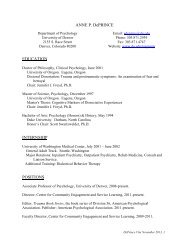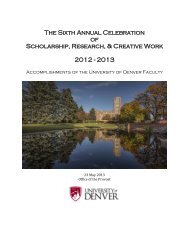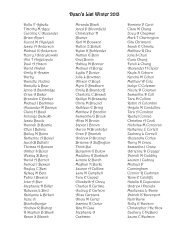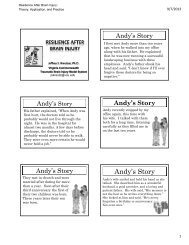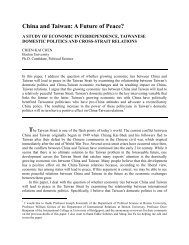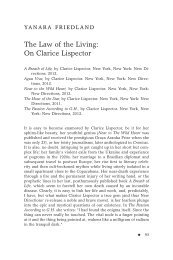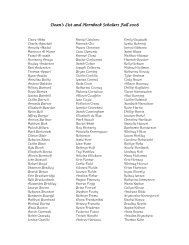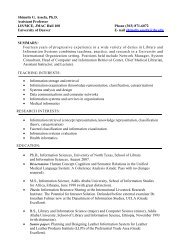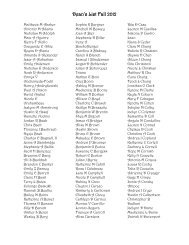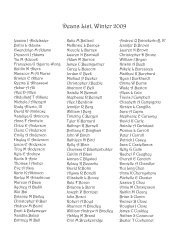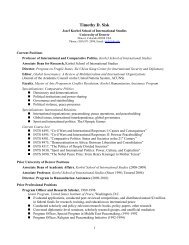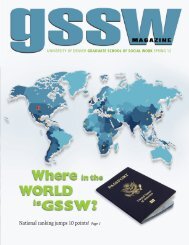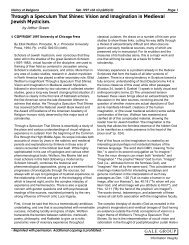Policy Memo Requirements & Guidelines 2012-2013 edition
Policy Memo Requirements & Guidelines 2012-2013 edition
Policy Memo Requirements & Guidelines 2012-2013 edition
Create successful ePaper yourself
Turn your PDF publications into a flip-book with our unique Google optimized e-Paper software.
Institute for Public <strong>Policy</strong> Studies<br />
<strong>Guidelines</strong> II - <strong>Policy</strong> <strong>Memo</strong><br />
Overview<br />
The policy memorandum is a document that outlines the rationale for choosing a particular policy alternative or course of<br />
action in a current policy debate. It is commonly produced in response to a request directly from a decision-maker or<br />
within an organization that intends to advocate for the position detailed in the document. Depending on the role of the<br />
writer or organization producing the document, the memo may only provide a targeted discussion of the current<br />
alternatives without arguing for a particular one (i.e. those who adopt the role of ‘objective’ researcher). On the other end<br />
of the scale, i.e. advocates, the memo may focus directly on providing an argument for the adoption of a particular<br />
alternative. Nevertheless for any case, as any policy debate is a market place of competing ideas, the purpose of the<br />
policy memorandum is to convince the target audience of the urgency of the current problem and the need to adopt the<br />
preferred alternative or course of action outlined and therefore, serve as an impetus for action. Remember: a policy<br />
memorandum is a tool for decision-making; therefore, it has to provide decision-makers with the necessary information<br />
to make policy choices.<br />
Topic Choice<br />
The choice of your topic is extremely important for the success of your policy memorandum. As mentioned in the<br />
requirements, you should choose a topic that lends itself to policy analysis and therefore policy solutions. An appropriate<br />
topic has the following characteristics:<br />
• Precise: it is easily defined in straightforward terms. Example: “improving graduation rates in public schools” is a<br />
precise definition, whereas “improving education in the US” is not. A vague topic choice would be detrimental to the<br />
focus of your research. It would also lends itself to vague policy recommendations.<br />
• Specific: it is limited to a well-defined policy area and (possibly) to a well-defined domain. A specific topic will help you<br />
limit your research to the information that you actually need. Example: “Resource management in the US” would be a<br />
very general topic that has countless potential venues of research and analysis, whereas “Water management in<br />
Colorado” would focus your research on a specific resource (water) and on a specific geographic domain (Colorado).<br />
• Disputed: it lends itself to multiple approaches and points-of-view. If your topic is about an uncontroversial issue, then<br />
it is not going to command the attention of your audience; same if the solution to the problem is foregone.<br />
Features of the <strong>Memo</strong>randum<br />
An effective policy memorandum should have the following qualities:<br />
<strong>Policy</strong> <strong>Memo</strong>randum <strong>Guidelines</strong> 7



